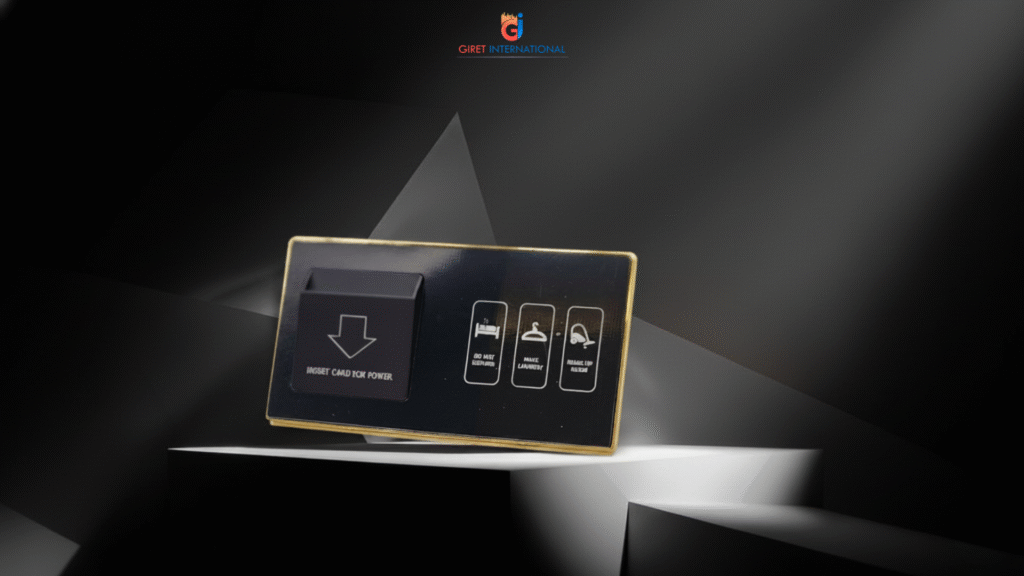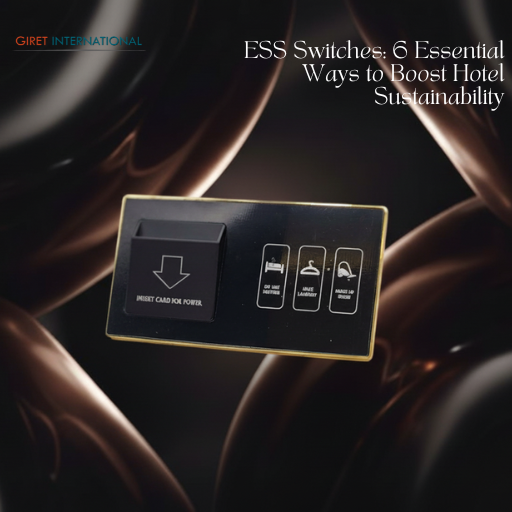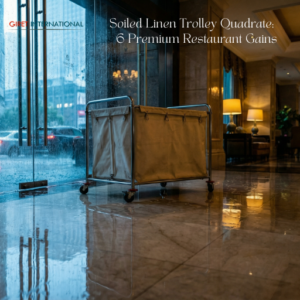ESS switches are rapidly becoming one of the most influential energy-control technologies in the modern hospitality industry. At a time when hotels are under pressure to cut energy waste, lower emissions, and deliver environmentally responsible experiences, these smart switches introduce automation that runs quietly behind the scenes ensuring every guest room behaves sustainably, consistently, and safely.
Rising electricity costs, stricter sustainability audits, and changing traveler expectations have transformed how hotels think about power consumption. Guests no longer want luxury at the expense of the environment; they expect properties to operate responsibly without reducing comfort. ESS switches empower hotels to achieve this balance effortlessly.

When integrated correctly, they reduce waste, improve HVAC performance, eliminate phantom load, protect wiring, and create predictable energy patterns. This makes them central to eco-friendly hotel design and one of the most cost-effective steps in establishing long-term sustainability.
Table of Contents
- ESS switches and the Rise of Green Hospitality
- How ESS switches Create Predictable Energy Behavior
- ESS switches and Smart HVAC Optimization
- ESS switches for Lighting and Appliance Sustainability
- Operational Gains That Support Hotel Sustainability
- How ESS switches Strengthen Green Certifications
- Additional Energy-Saving Measures Enabled by ESS Automation
- Choosing Models That Reinforce Sustainability
- Installation Practices That Maximize Impact
- Real Sustainability Improvements Across Hotels
- Conclusion
1. ESS switches and the Rise of Green Hospitality
Hotels around the world are being forced to rethink their operational blueprint. Electricity consumption has become one of the largest contributors to operating costs and also the most manageable. The move toward climate-conscious tourism has pushed hotels to demonstrate measurable environmental action.
This is where ESS switches have emerged as a foundational element. They help hotels address the most persistent challenge: power being used when no one is inside the room. From AC misuse to lights left running for hours, unmanaged energy behavior has silently drained resources for decades.
Automation changes this dynamic. With ESS-based control, rooms become intelligent spaces that respond only to occupancy. This instantly shifts the hotel toward greener operations, lowering costs while improving electrical safety and infrastructure stability.

2. How ESS switches Create Predictable Energy Behavior
Unpredictable room-level power usage is the root cause of most energy waste in the hospitality sector. Guests come from different cultures, climates, and habits and they don’t think about consumption. But the property pays for every forgotten light, every unattended AC cycle, and every device left charging unnecessarily.
By integrating ESS switches, hotels create a discipline in their electrical environment. Power runs only when it is needed; it stays off when it isn’t. This single shift reduces:
- Idle lighting hours
- Unattended appliance drain
- Unsafe usage patterns
- Overheating and wiring wear
Predictability is a major factor in long-term sustainability, especially for hotels targeting consistency across 50–200 rooms.
3. ESS switches and Smart HVAC Optimization
HVAC systems are responsible for nearly 40–60% of total guest-room energy consumption. Unmanaged HVAC behavior is one of the biggest drivers of inflated carbon emissions in the hotel sector.

When ESS switches regulate HVAC usage, rooms cool only when guests are physically present. This prevents:
- Hours of unnecessary cooling
- Compressor stress
- Coil freezing
- Excessive electricity load
- Uneven room temperatures
For large hotels, this is transformative. A property with 120 rooms can save thousands of kilowatt-hours each month. Beyond cost savings, properly controlled HVAC cycles greatly reduce maintenance strain and prolong equipment life an important sustainability benefit rarely acknowledged in traditional audits.
4. ESS switches for Lighting and Appliance Sustainability
Lighting waste is one of the most common and easily preventable energy losses in hotels. Guests often leave the bathroom, mirror, or reading lights on before stepping outside for meals or activities. Over the course of a year, this adds up to an enormous amount of electricity wasted.
By using ESS switches, hotels take full control of lighting patterns. Lights coordinate with occupancy ensuring guest comfort and eliminating hours of unnecessary illumination.
Appliances also contribute to energy waste and safety hazards:
- Kettles left plugged in
- Irons left heated
- Hairdryers not switched off
- Mini-fridges that run nonstop
- Chargers drawing phantom load

With automated power cutoff, these devices become eco-friendly by design. This blend of safety and sustainability allows hotels to maintain a responsible room ecosystem.
5. ESS switches and Operational Gains That Support Hotel Sustainability
Beyond energy savings, hotels benefit operationally in several ways when integrating ESS switches. Sustainable operations are not just about lowering electricity consumption they also involve creating procedures and systems that scale smoothly as occupancy changes.
Hotels gain:
- More stable electrical load across all rooms
- Lower risk of overheating
- Fewer emergency calls to engineering teams
- Extended life of wiring, transformers, and switchgear
- Safer and faster room turnover for housekeeping
These operational efficiencies contribute to a fully sustainable hotel environment one where systems, staff, and infrastructure work in harmony.
6. ESS switches as a Foundation for Green Certification

Major sustainability certification bodies now require occupancy-based control systems as part of their evaluation framework. LEED, GRIHA, IGBC, and EarthCheck all consider automated energy control a key metric.
By deploying ESS switches, hotels strengthen their ability to secure points across several criteria:
- Energy optimization
- Load management
- Emission reduction
- Smart building controls
- Electrical safety and stability
This provides hotels with a strategic advantage in both marketing and compliance. Certifications enhance guest trust and demonstrate tangible environmental progress.

7. Additional Energy-Saving Measures Enabled by ESS switches Automation
Once hotel rooms operate on automated logic, the property can introduce broader sustainability initiatives. Predictable energy behavior allows managers to implement:
- Renewable energy integration
- Smart peak-load management
- Energy scheduling for corridors and back-of-house
- Reduced DG (diesel generator) dependence
- Long-term electrical infrastructure stability
In this way, ESS switches play an enabling role, opening doors to sustainable upgrades that extend far beyond guest rooms.
8. Choosing Models That Reinforce Sustainability
Selecting the right energy-saving systems requires hotels to evaluate:
- Load capacity
- Durability
- Type of panel (glass or polycarbonate)
- Wiring quality
- Card compatibility
- Designed delay timings
- Heat-resistance levels

Models built for high-usage environments provide stronger sustainability results and reduce long-term maintenance needs.
9. Installation Practices That Maximize Impact
Correct installation ensures that sustainability targets are met consistently. Hotels should ensure:
- Proper neutral/phase alignment
- Secure wiring boxes
- Correct circuit allocation
- Accurate delay configuration
- Reliable reader-to-controller communication
Improper installation can reduce system efficiency by 20–30%, which is why trained technicians and post-installation testing are essential.
10. Real Sustainability Improvements Across Hotels
Eco Resort: Tropical Region
An oceanfront resort saw energy consumption drop significantly after implementing automated room controls. In addition to cutting waste, the property reduced HVAC repair frequency improving the resort’s carbon footprint.
Business Hotel: Urban Location
A high-turnover hotel eliminated standby load by using ESS switches. Phantom consumption dropped so drastically that monthly utility bills became more predictable.
Heritage Hotel: Historic Building
Older wiring systems benefited from stable load patterns. Controlled usage cycles prevented overheating and reduced strain on outdated components.
Chain Property: Multi-City Brand
By standardizing automated controls across all properties, the brand unlocked measurable savings and improved its sustainability image across national markets.
11. Conclusion

Hotels looking to thrive in the sustainability era must invest in intelligent systems that minimize waste without disrupting guest experience. Automation provides a scalable solution that benefits every part of the hotel’s ecosystem from engineering to housekeeping to guest satisfaction.
By integrating ESS switches, hotels control idle consumption, reduce HVAC overload, eliminate phantom electricity, stabilize room behavior, and strengthen green-building compliance.
Sustainability becomes easy not because staff work harder, but because the building itself becomes smarter.
About Giret International
Contact Us
Hospitality Products
Instagram | Facebook | Pinterest | YouTube | X (Twitter)





